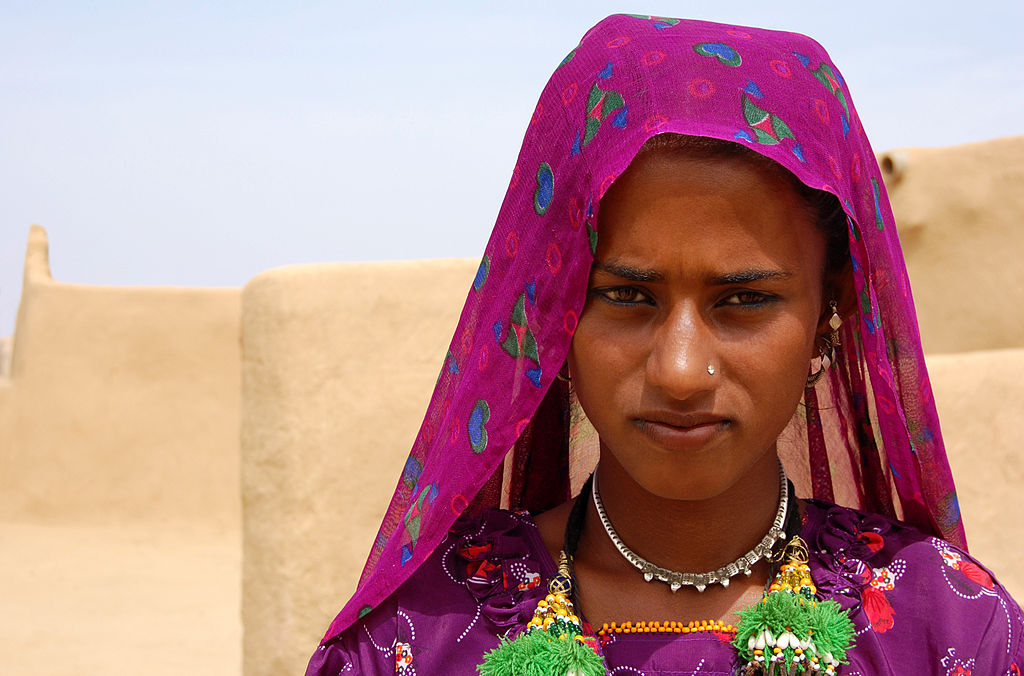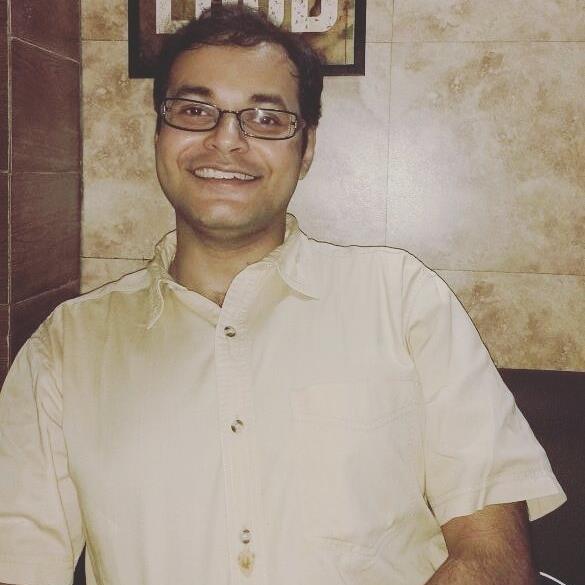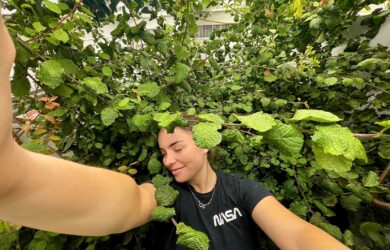
Sagnik Dutta's research focuses on the relationship between Muslim rights and the Indian constitution.
Women became symbols of an imagined community.
Sagnik Dutta
The issue of minority rights in India has come more to the fore following the victory of Narendra Modi's Hindu nationalist BJP.
Sagnik Dutta [2016] has long been interested in the interaction between minority rights and the law, having spent several years working as a journalist in India covering the Supreme Court and the Muslim women’s reform movement.
His PhD, which he began last autumn, looks at the relationship between religion and constitutionalism in the context of Muslim personal law reform in India. Based on an analysis of the judgments of the Supreme Court and an ethnographic study of sharia courts run by women in Mumbai, he will be examining the complex interplay between religion and a liberal ‘rights’ regime.
He has already begun exploring archived reports on legislative debates in the 1930s, before Indian independence, around Muslim women’s rights and the codification of Muslim law. “Women became symbols of an imagined community,” he says. Muslim women's right to divorce was codified and recognised by laws laid down by the colonial state after Muslim members in the legislative assembly argued that they were being denied rights already granted to them by Islamic law. Hindu women, on the other hand, only had their rights codified in the Hindu Marriage Act in the 1950s. “Muslim women were not seen as threatening those who were making the law,” says Sagnik, who is at Corpus Christi College.
Early career
Sagnik’s first degree was in the Humanities from the University of Calcutta. He studied English Literature with Philosophy and History, combining his studies with working for development-related NGOs and freelance writing for a local newspaper. On graduating he got a full-time job in Delhi working for the advertising arm of Google before doing some editing, reporting and opinion writing work for the Indian Express newspaper. Sagnik, who had written several articles on LGBT rights, was very interested in how the government regulates the law in a country which has multiple legal systems, particularly with regard to human rights.
After working as a journalist for two years, he was keen to return to academia and won a fellowship to study at SOAS in 2010. It was the first time anyone in his family had been abroad. There he did his dissertation on politics – on Sri Lankan women’s participation in the secessionist movement, examining whether women in the movement saw themselves as empowered or serving a patriarchal project and whether it is possible to negotiate a third way between empowerment and subjugation. His research was based on oral history and personal narrative. “It was clear that there were multiple narratives and that women could not be slotted into binaries,” says Sagnik. “There were some spheres where they had their own agency. I was very interested in the whole issue of gender and war. Academic studies had not asked questions about the possibilities of a third space. I wanted to explore new ways of thinking about women’s participation in war.”
While at SOAS, Sagnik worked as a research assistant for Professor Matthew Nelson in the politics department. He was writing a book on madrassas in Pakistan. Sagnik became interested in the role of Islam in education and in learning about the reality of madrassas rather than the misconceptions about them that are common in the West. “People in Pakistan can attend both madrassas and secular schools and they don’t see these as being in opposition,” he says. “It is more complex universe than is portrayed in the West.”
At SOAS Sagnik also became involved with the human rights collective Femine Ijtihad which is made up of Muslim women from several different countries who are interested in turning academic work on human rights into policy guidelines. The group met once a month to debate issues such as how to counter the idea of women being oppressed within Islam through stories of agency. “They were a deeply religious group of women who felt empowered and did not see their religion as an oppressive force,” says Sagnik. His involvement in the group informed some of the thinking behind his PhD.
Journalism at a time of huge change
After SOAS, Sagnik moved back to India and spent six months working on the Sunday Guardian before moving to Frontline magazine, which is published by The Hindu. It was a time when popular resentment against the government was rising, concerns about corruption were rife and the right was mobilising.
Sagnik spent five years working at Frontline. In his first months he focused on the political economy and covered a lot of corruption cases at the Supreme Court, cuts in public services and the encroachment on the public sector of private vested interests as well as reform movements led by Muslim women.
“During my journalistic career I was looking for a topic I would want to work on for my PhD,” he says. Once he knew the area he wanted to research, he applied for his PhD. He was drawn to Cambridge due to the work of Dr Iza Hussin in the Department of Politics and International Studies which brings together history and social anthropology.
Before leaving India, he began working as an Assistant Professor at OP Jindal Global University, a private law university in India where he taught a course in English with modules on law and literature, philosophy, and legal writing. There he wrote a paper which has since been published in a peer review journal on the relationship between legislation on community identity and the Indian constitution based on case law from the 1980s to the present. “I am interested in how the law speaks to ideas of morality and justice," he says.
*Picture credit: Paulrudd (Own work) [CC BY-SA 3.0 (http://creativecommons.org/licenses/by-sa/3.0) or GFDL (http://www.gnu.org/copyleft/fdl.html)], via Wikimedia Commons

Sagnik Dutta
- Alumni
- India
- 2016 PhD Politics & International Stud
- Corpus Christi College
I am currently an Assistant Professor in Jindal Global Law School in India where I teach foundational courses in social sciences and more specialised courses in political science. I completed my doctoral studies in Politics and International Studies in 2020. I have published widely since then in various prominent peer-reviewed journals in the field of gender studies and socio-legal studies such as Feminist Theory, Law and Social Inquiry, and Ethnicities. My research builds upon research builds upon ethnographic fieldwork on working class Muslim women’s activism in contemporary India to deparochialise debates on minority rights, gender, and liberalism in political theory and international relations that are usually explored through the prism of liberal multiculturalism. I am committed to decolonising the disciplines of politics and international relations. Details of my publications can be found in my official website.
Previous Education
University of Calcutta
School of Oriental and African Studies












